The 2012 newspaper ad revenues, reported Monday by the Newspaper Assn. of America, are bad enough ($22 billion vs. $49B in 2006) without the Pew Charitable Trusts exulting, as usual, over this decline and blaming the "quality" of news reporting.
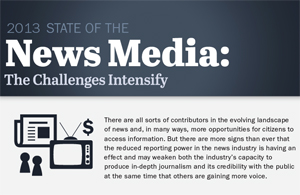 Papers, having slashed staffs, are no longer providing the news and information that readers used to get, Pew huffs in its "The State of the News Media 2013."
Papers, having slashed staffs, are no longer providing the news and information that readers used to get, Pew huffs in its "The State of the News Media 2013."
Pew and its blood-brother, the Poynter Institute, leave out a major factor in the information equation -- public relations.
Newspeople can only ask questions. The answers are at companies and institutions and the flow of information from those sources has become a trickle.
Press conferences have disappeared and availability of CEOs is at an all-time low. CEOs at $5 billion+ companies were paid an average of $14 million in 2012. CEO pay used to be about 20X that of employees. Now it's around 500 times. No wonder they are in hiding.
Corporations have cut their (national) ads in newspapers from $8 billion in 2004 to $3.3B in 2012.
The Pew report is loaded with harpoons aimed at the news media with no mention of the near rigor-mortis at the sources of news.
"Some Americans Are Abandoning News Outlets that No Longer Serve Their Needs," says one headline.
Conservatives Rap Media
Pew operatives are died-in-the-wool conservatives rapping the hated liberal media while ignoring their own role in the shrinkage of news staffs and news flow.
Pew, a $5 billion operation funded by Sunoco oil money, backed the John Birch Society in its early years. It also backs mainstream think tanks like the Brookings Institute.
There's plenty of criticism of Pew and especially its high-priced staff that required $71.4 million in pay in 2011 to make $120M in grants. [EIN is 56-2307147.]
Philadelphia Magazine's Noel Weyrich, among others, wonders why it costs so much to give money away.
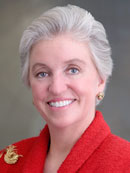 |
Rebecca Rimel, former emergency room nurse who became CEO in 1994, expanded the staff from fewer than 60 to 683.
A key point made by Weyrich in his article titled, "Peeewwww," is that Rimel is "rarely interviewed by the press."
A controversy raged for years in Philadelphia over Pew's efforts to move the Barnes art collection to Center City.
Pew communications officer Tracy Schario, former president of the PR Society's largest chapter, National Capital, ran for the national board last summer from the Mid-Atlantic district.
Schario, who led the opposition at the Assembly in 2006 to Central Michigan's bid to model Society governance after that of the American Bar and American Medical Assns., rebuffed attempts by this website to see where she stood on Society issues. She would not even acknowledge receiving the questions.
This mystified us because a Rimel statement supports "an unfettered and robust press" and says that citizens have the right to "basic information on candidates' issue positions."
Multiply Rimel and Schario stiffing the press by zillions and you have the picture of what is going on in corporate and institutional PR these days.
Just about every organization down to Cub Scout packs has a "PR" or "communications" person who does not pick up the phone and who has e-mail messages that say, "I will not be reachable by e-mail for the next few days…"
Frank Rich Bemoans State of News
Also bemoaning the state of news but leaving out any mention of PR stonewalling is Frank Rich, formerly of the New York Times, who writes in the April 7 New York magazine that Time is "on the block" and the NYT is "teetering."
He feels the last two months have been especially bad for journalism, "a tipping point," and the "prospects are hardly getting better." He calls the Washington Post "emaciated" and notes it is now exploring the sale of its building.
While papers are gaining slightly in digital advertising (up 3.7% to $3.3 billion in 2012), he feels there is "no likelihood that advertising, digital ads included, will ever again subsidize any old-media news organizations in the style to which they (and their audiences) had become accustomed."
He feels the "information is free" era is over and "the audience will have to pay for more of the media it wants—whatever form it comes in."
Americans are paying plenty for TV access, he notes, saying: "We're at the beginning of a new chapter in the history of news media."
News Orgs Ignore PR's Role
PRSA's example of blocking access to its events, including its last two Assemblies, and its blanket boycott against the O'Dwyer Co., has drawn the ire of the National Press Club, New York State Senator Liz Krueger, and PR Watch.
But a dozen journalist and PR organizations have remained silent about this. It is time they spoke up. PR people are as much to blame for the decline in the quantity and quality of news coverage as reporters and their publishers.
On the sidelines so far are:
- Society of Professional Journalists
- New York Financial Writers Assn.
- ProPublica
- Overseas Press Club of America
- New York Women in Communications
- Publicity Club of New York
- Committee to Protect Journalists ($13 million treasury)
- Reporters Committee for Freedom of the Press
- Poynter Institute
- Arthur W. Page Society
- Institute for PR
- Pew Research Project for Excellence in Journalism
- Investigative Reporters & Editors, based at Univ. of Missouri J School


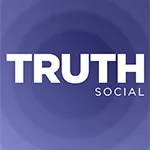 Trump Media & Technology Group today reported a $58.2M net loss on $4.1M in 2023 revenues, a disclosure that drove its stock price down 22.6 percent to $47.96.
Trump Media & Technology Group today reported a $58.2M net loss on $4.1M in 2023 revenues, a disclosure that drove its stock price down 22.6 percent to $47.96. Barry Pollack, an attorney at Wall Street’s Harris St. Laurent & Wechsler, has registered Julian Assange as a client with the Justice Dept. “out of an abundance of caution.”
Barry Pollack, an attorney at Wall Street’s Harris St. Laurent & Wechsler, has registered Julian Assange as a client with the Justice Dept. “out of an abundance of caution.”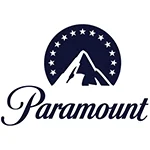 Paramount Global to slash 800 jobs in what chief executive Bob Bakish calls part of an effort to “return the company to earnings growth"... Rolling Stone editor-in-chief Noah Shachtman is exiting at the end of the month due to disagreements with chief executive Gus Wenner over the direction the magazine is taking... The New York Times broke the $1 billion barrier in annual revenue from digital subscriptions in 2023... Press Forward is investing more than $500 million to strengthen local newsrooms.
Paramount Global to slash 800 jobs in what chief executive Bob Bakish calls part of an effort to “return the company to earnings growth"... Rolling Stone editor-in-chief Noah Shachtman is exiting at the end of the month due to disagreements with chief executive Gus Wenner over the direction the magazine is taking... The New York Times broke the $1 billion barrier in annual revenue from digital subscriptions in 2023... Press Forward is investing more than $500 million to strengthen local newsrooms.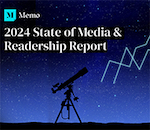 The majority of news articles are read within the first three days of publication, according to a recent report.
The majority of news articles are read within the first three days of publication, according to a recent report.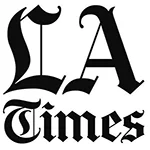 The Los Angeles Times gives pink slips to 115 people or 20 percent of its newsroom staff... TIME is also laying off about 30 employees, which is approximately 15 percent of its editorial staff... The Baltimore Banner, which was launched by Stewart Bainum in 2022 after he failed to buy the Baltimore Sun, added 500 subscribers per day in the three days following Sinclair Broadcast Group's deal to purchase the Sun.
The Los Angeles Times gives pink slips to 115 people or 20 percent of its newsroom staff... TIME is also laying off about 30 employees, which is approximately 15 percent of its editorial staff... The Baltimore Banner, which was launched by Stewart Bainum in 2022 after he failed to buy the Baltimore Sun, added 500 subscribers per day in the three days following Sinclair Broadcast Group's deal to purchase the Sun.


 Have a comment? Send it to
Have a comment? Send it to 
No comments have been submitted for this story yet.